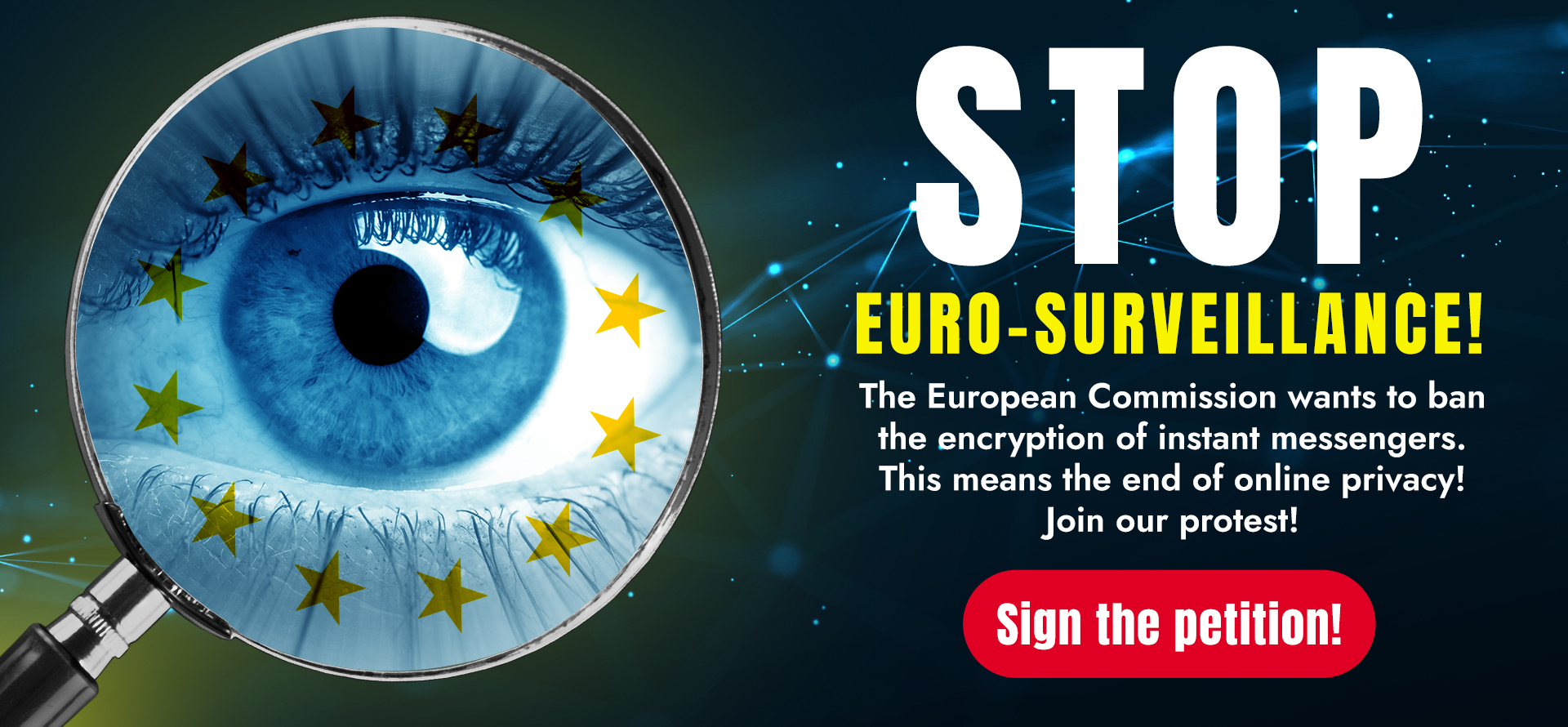The European Commission wants to read our messages!
Under the pretext of rightfully fighting the abuse of minors, the European Commission wants to eliminate end-to-end encryption of instant messaging. Anything can be decrypted and evaluated, including correspondence between family members and friends, lawyer and client, citizen and investigative journalist, messages sent between employees or business correspondence between entrepreneurs. This is essentially surveillance of citizens introduced under the pretext of fighting for the safety of children.
President of the European Commission
Ursula von der Leyen
Dear Madam President,
the prevention of child abuse is a very important and noble goal that the entire European community should strive to achieve. For its effective implementation, a comprehensive child protection program should be developed not only in the digital space, but also in educational institutions, the media and broadly understood culture in which children participate on a daily basis. However, the solution to this problem cannot be depriving all citizens of EU Member States of some fundamental rights and freedoms.
Therefore, we were concerned about the draft EU regulation on preventing and combating child abuse. The solution envisaged by the project initiator undermines the possibility of end-to-end encryption, which is used by some instant messengers. This raises serious doubts not only in terms of conflict with the fundamental rights of citizens of the European Union Member States, but also in terms of the potential consequences of adopting the draft, and above all, its actual effectiveness.
Many messengers used by Internet users owe their popularity to data encryption using the end-to-end method. Thanks to this, users of applications such as WhatsApp or Signal can keep their correspondence private and protect it from being stolen by cybercriminals. The implementation of the project will undermine this form of message encryption and will mean the liquidation of privacy and security of correspondence on the Internet. As a result of the proposed changes, all messages will not only be available to law enforcement authorities, but will also become vulnerable to unauthorized attacks.
This project treats all EU citizens as potential criminals, and every message and file sent via the Internet as a potential infringement that should be investigated by law enforcement. Correspondence between family members and friends, messages sent between employees or commercial correspondence between entrepreneurs would be subject to decryption and evaluation. This will also apply to investigative journalists, lawyers, human rights defenders, etc. This is in fact surveillance of citizens introduced under the noble slogan of fighting for the safety of children. The proposed measures may lead to abuse of power, false alarms and total surveillance of the private correspondence of all citizens.
The submitted draft does not refer in any way to the causes of child abuse and does not try to counteract the progressive objectification of children’s corporeality in culture, in the entertainment or fashion industry. This calls into question the true motivation of the project promoter, who is focused on gaining access to the confidential correspondence of citizens and depriving them of their privacy and security. The noble goal of fighting crime cannot legitimize the introduction of surveillance solutions that undermine the most important civil rights and freedoms and the foundations of the democratic order.
The effectiveness of the proposed solution in combating child abuse is also questionable. It is worth noting that the end-to-end ban will not apply to criminals who will continue to use applications from outside the European Union, so the possibility of free transmission of illegal content by criminals will not be stopped. As a result, the proposed solution will not solve the problem, but will only limit the freedom and privacy of EU residents.
In connection with the above, we demand your intervention in this matter, by withdrawing the draft in question, or modifying it by deleting from it the provisions preventing the use of end-to-end encryption.
Citizens of the European Union
Under the pretext of just fight against the exploitation of minors, the European Commission has proposed banning end-to-end encryption of instant messaging. End-to-end encryption is used by the most popular instant messengers, with WhatsApp and Signal at the forefront. These applications owe their popularity primarily to their high level of privacy and strong data security against unauthorized parties, including criminals. As EU citizens, we will all be treated as potential criminals, and every message and file we send online as a potential violation of the law, which should be investigated by law enforcement.

